Social Skills Activities for the Elementary Grades
$29.95
Dianne Schilling & Susanna Palomares
The activities in this book are designed to help children become aware of the importance of effectively relating to others and to teach them social interaction skills in a deliberate and enjoyable fashion. These developmentally appropriate activities provide children with experiences that allow them to explore interpersonal relations from many angles and through a variety of learning styles. Each of the twelve instructional units addresses a specific area of skill development. Initial units focus on self-awareness which is fundamental to understanding and relating well to others.
Unit topics are:
- Positive Self-talk
- Making Positive Choices
- Communicating Effectively
- Being Responsible
- Following Rules
- Understanding Body Language
- Making and Keeping Friends
- Cooperating With Others
- Helping Others
- Appreciating Differences
- Managing Anger and Fear
- Managing Conflict
Introduction
Introduction Relating effectively to others is a challenge we all face. People who are effective in their social interactions have the ability to understand others. They know how to interact flexibly, skillfully, and responsibly. At the same time, they recognize their own needs and maintain their own integrity. Socially effective people can process the nonverbal as well as verbal messages of others. They possess the very important awareness that all people have the power to affect one another. They are aware of not only how others affect them, but the effects their behaviors have on others.
In order to build healthy relationships, children need to have positive interpersonal experiences and to gain information concerning the social realm of life. As a rule, we do not systematically teach children how to understand and get along with other people. However, since social skills are fundamental to success in life, and are learned behaviors, children should be consistently and developmentally taught these important skills.
It is important to recognize that people who enjoy effective social relationships are exhibiting not just one ability, but many different skills, each at a different level of development with different nuances of understanding.
The activities and Sharing Circles in this book are designed to help children become aware of the importance of effectively relating to others, and to teach them social interaction skills in a deliberate and enjoyable fashion. Each of the twelve instructional units addresses a specific area of skill development. Initial units focus on self-awareness, which is fundamental to understanding and relating well to others.
Each unit contains two Sharing Circles, this book’s primary vehicle for teaching social skills to children. In addition, group activities provide children with experiences that allow them to explore interpersonal relations from many angles and through many learning styles. Discussion questions are an integral part of each activity, and encourage children to consider and internalize what they have learned.
How Sharing Circles Teach Social Skills
The Sharing Circle process has been designed so that healthy, responsible behaviors are modeled by the teacher or counselor in his or her role as circle leader. The rules also require that the children relate positively and effectively to one another. The Sharing Circle brings out and affirms the positive qualities inherent in everyone and allows children to practice effective modes of communication. Through regular practice and reinforcement, children internalize effective interpersonal skills and are then able to transfer those skills to other situations. Because Sharing Circles provide a place where participants are listened to and their feelings accepted, children learn how to provide the same conditions to peers and adults outside the circle.
One of the great benefits of the Sharing Circle is that it does not merely teach young people about social interaction, it lets them interact! Every Sharing Circle is a real-life experience of social interaction where the children share, listen, explore, plan, dream, and problem solve together. As they interact, they learn about each other and they realize what it takes to relate effectively to others. Any given Sharing Circle may provide a dozen tiny flashes of positive interpersonal insight for an individual participant. Gradually, the reality of what constitutes effective behavior in relating to others is internalized.
Through this regular sharing of interpersonal experiences, the children learn that behavior can be positive or negative, and sometimes both at the same time. Consequences can be constructive, destructive, or both. Different people respond differently to the same event. They have different feelings and thoughts. The children begin to understand what will cause what to happen; they grasp the concept of cause and effect; they see themselves affecting others and being affected by others.
The ability to make accurate interpretations and responses in social interactions, when combined with growing self-knowledge and awareness, produces a broad and practical sense of values or ethics. When children possess this ability, they know where they stand with themselves and with others. They can tell what actions “fit” a situation. Sharing Circles are marvelous testing grounds where children can observe themselves and others in action, and can begin to see themselves as contributing to the good and bad feelings of others. With this understanding, children are helped to conclude that being responsible towards others feels good, and is the most valuable and personally rewarding form of interaction. < class=”introText”>
K-6, 172 pages, 8-1/2 x 11, paperback
Description
Dianne Schilling & Susanna Palomares
The activities in this book are designed to help children become aware of the importance of effectively relating to others and to teach them social interaction skills in a deliberate and enjoyable fashion. These developmentally appropriate activities provide children with experiences that allow them to explore interpersonal relations from many angles and through a variety of learning styles. Each of the twelve instructional units addresses a specific area of skill development. Initial units focus on self-awareness which is fundamental to understanding and relating well to others.
Unit topics are:
- Positive Self-talk
- Making Positive Choices
- Communicating Effectively
- Being Responsible
- Following Rules
- Understanding Body Language
- Making and Keeping Friends
- Cooperating With Others
- Helping Others
- Appreciating Differences
- Managing Anger and Fear
- Managing Conflict
Introduction
Introduction Relating effectively to others is a challenge we all face. People who are effective in their social interactions have the ability to understand others. They know how to interact flexibly, skillfully, and responsibly. At the same time, they recognize their own needs and maintain their own integrity. Socially effective people can process the nonverbal as well as verbal messages of others. They possess the very important awareness that all people have the power to affect one another. They are aware of not only how others affect them, but the effects their behaviors have on others.
In order to build healthy relationships, children need to have positive interpersonal experiences and to gain information concerning the social realm of life. As a rule, we do not systematically teach children how to understand and get along with other people. However, since social skills are fundamental to success in life, and are learned behaviors, children should be consistently and developmentally taught these important skills.
It is important to recognize that people who enjoy effective social relationships are exhibiting not just one ability, but many different skills, each at a different level of development with different nuances of understanding.
The activities and Sharing Circles in this book are designed to help children become aware of the importance of effectively relating to others, and to teach them social interaction skills in a deliberate and enjoyable fashion. Each of the twelve instructional units addresses a specific area of skill development. Initial units focus on self-awareness, which is fundamental to understanding and relating well to others.
Each unit contains two Sharing Circles, this book’s primary vehicle for teaching social skills to children. In addition, group activities provide children with experiences that allow them to explore interpersonal relations from many angles and through many learning styles. Discussion questions are an integral part of each activity, and encourage children to consider and internalize what they have learned.
How Sharing Circles Teach Social Skills
The Sharing Circle process has been designed so that healthy, responsible behaviors are modeled by the teacher or counselor in his or her role as circle leader. The rules also require that the children relate positively and effectively to one another. The Sharing Circle brings out and affirms the positive qualities inherent in everyone and allows children to practice effective modes of communication. Through regular practice and reinforcement, children internalize effective interpersonal skills and are then able to transfer those skills to other situations. Because Sharing Circles provide a place where participants are listened to and their feelings accepted, children learn how to provide the same conditions to peers and adults outside the circle.
One of the great benefits of the Sharing Circle is that it does not merely teach young people about social interaction, it lets them interact! Every Sharing Circle is a real-life experience of social interaction where the children share, listen, explore, plan, dream, and problem solve together. As they interact, they learn about each other and they realize what it takes to relate effectively to others. Any given Sharing Circle may provide a dozen tiny flashes of positive interpersonal insight for an individual participant. Gradually, the reality of what constitutes effective behavior in relating to others is internalized.
Through this regular sharing of interpersonal experiences, the children learn that behavior can be positive or negative, and sometimes both at the same time. Consequences can be constructive, destructive, or both. Different people respond differently to the same event. They have different feelings and thoughts. The children begin to understand what will cause what to happen; they grasp the concept of cause and effect; they see themselves affecting others and being affected by others.
The ability to make accurate interpretations and responses in social interactions, when combined with growing self-knowledge and awareness, produces a broad and practical sense of values or ethics. When children possess this ability, they know where they stand with themselves and with others. They can tell what actions “fit” a situation. Sharing Circles are marvelous testing grounds where children can observe themselves and others in action, and can begin to see themselves as contributing to the good and bad feelings of others. With this understanding, children are helped to conclude that being responsible towards others feels good, and is the most valuable and personally rewarding form of interaction. < class=”introText”>
K-6, 172 pages, 8-1/2 x 11, paperback

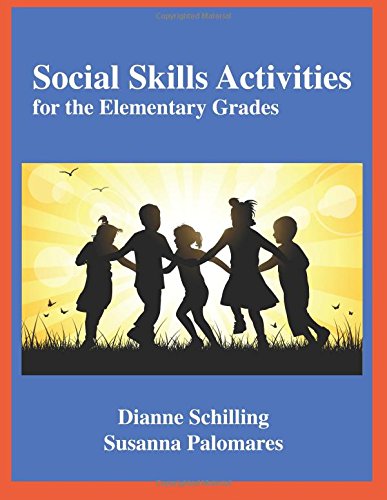
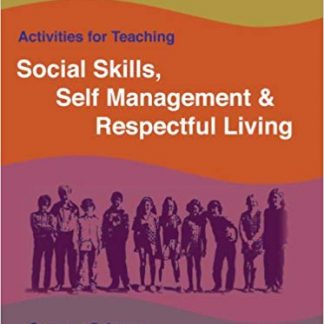
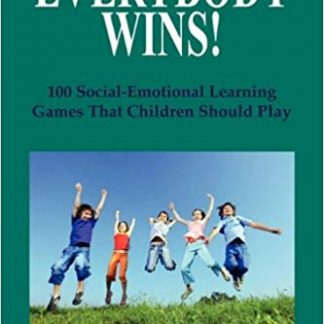
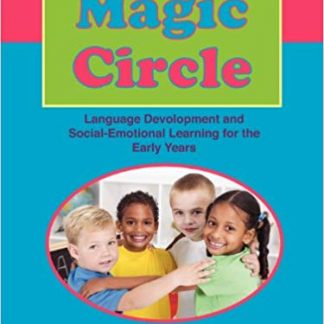
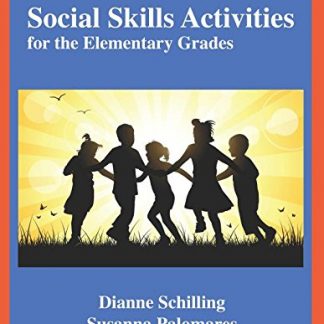
Reviews
There are no reviews yet.